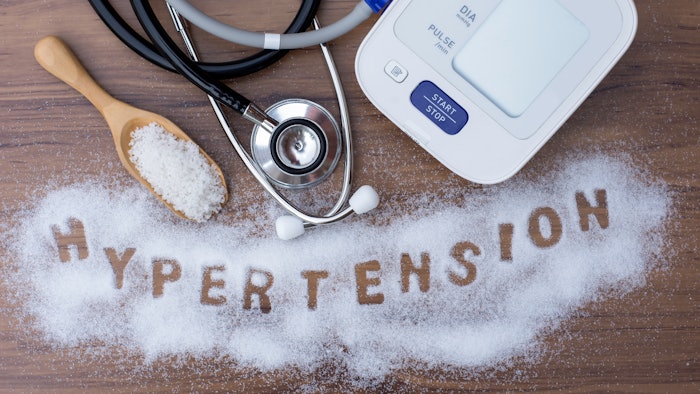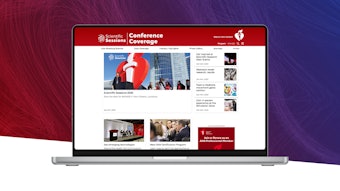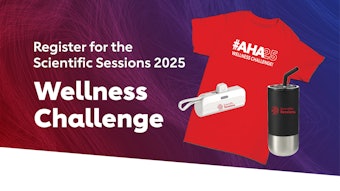New, simpler test may better detect salt sensitivity

A new test to determine salt sensitivity will make it easier to identify people who are at risk for cardiovascular disease, said a co-moderator in Sunday’s “Salt-Sensitive Hypertension: What Is New?” session.
“Being salt sensitive causes a person to be approximately 60% more likely to die from cardiovascular disease at a younger age, so being able to assess one’s Personal Salt Index (daily safe salt intake) is a promising advancement to decrease mortality from cardiovascular disease,” said Robin A. Felder, PhD, co-moderator of the session at 10:30-11:30 a.m. CST.
Traditional testing for salt sensitivity is expensive and tedious, said Dr. Felder, professor of pathology and associate director of clinical chemistry and toxicology at the University of Virginia School of Medicine in Charlottesville. It involves placing a patient on a highly controlled salt diet for two weeks with frequent measurements of blood pressure and testing renal function.
The new test, which examines the function of living renal cells excreted in the urine, can be performed on a single urine specimen. Currently, prospective studies are funded by the National Heart, Lung, and Blood Institute.
“If those prospective studies look promising, we hope to be able to apply this evidence for use with patients in our university clinics,” said Dr. Felder, who will co-moderate the session with Kathryn L. Sandberg, PhD, professor and vice chair for research in the Department of Medicine at Georgetown University in Washington, D.C. “
Widespread testing is especially critical for people who may be salt sensitive — but are not hypertensive and not aware of their increased risk for cardiovascular disease.
As an estimate “Eighteen percent of Americans with normal blood pressure may be salt sensitive,” Dr. Felder said. “Once one knows their Personal Salt Index while having a normal blood pressure, then hypertensive medications may be unnecessary, unless they are both salt sensitive and become hypertensive.”
Making patients aware of their Personal Salt Index could be an important primary preventative measure to significantly impact decreasing cardiovascular disease and increasing the possibility of a longer, healthier life..
“A little appreciated group of salt-sensitive individuals are inverse salt sensitive,” Dr. Felder said. “Approximately 15% of Americans are inverse salt sensitive and appear to have essential hypertension because low-salt diets actually raise their blood pressure.”
The ability to identify inverse salt sensitivity may reduce the likelihood that medications for lowering blood pressure are prescribed for those who should instead consume increasing amounts of daily salt until their blood pressure is within recommended guidelines
“All Americans may one day know their degree of salt sensitivity so they can consume the daily amount that would reduce or eliminate the chance of salt induced cardiovascular disease,” he said.











